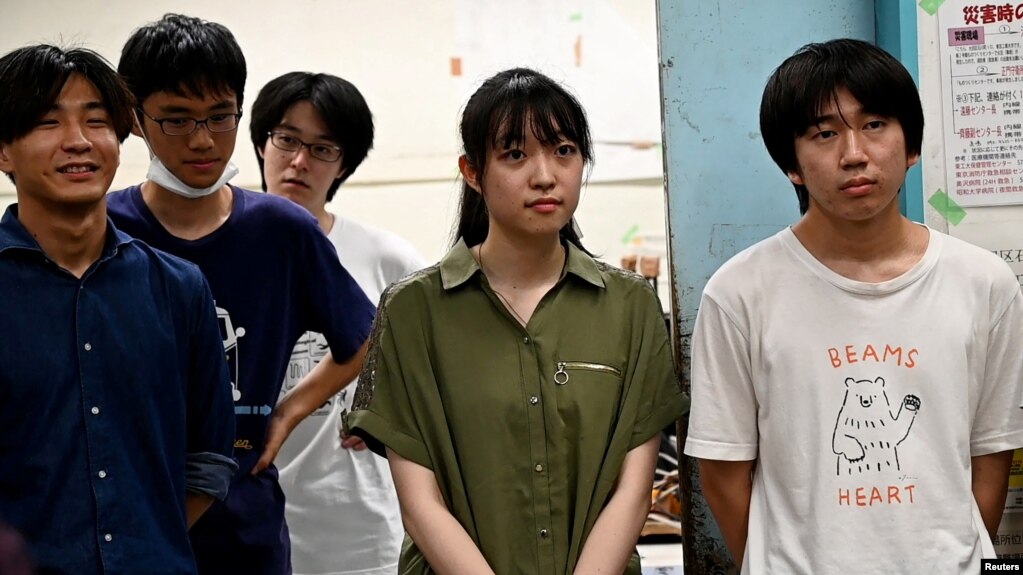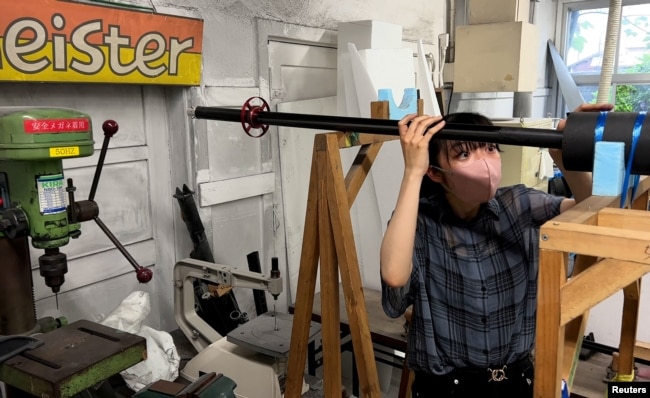Japan Wants to Remove Social Pressure on Women in Science

Yuna Kato is a third-year student at one of Japan’s top engineering universities. She is looking forward to a career in research but fears it might be short-lived if she has children.
Kato says relatives have tried to move her away from studying science, technology, engineering, and mathematics, commonly called STEM. They are doing so on the belief that women in the STEM field are too busy to meet a partner or have a family.
"My grandmother and mother often tell me that there are non-STEM jobs out there if I want to raise children," she said.
Kato has made it this far, but many females hoping to become engineers choose a different path due to social pressure. This creates many problems for Japan. In the information technology field alone, the country will be lacking 790,000 workers by 2030. That is largely due to a severe underrepresentation of women.
The outcome, experts warn, is a decrease in innovation, productivity, and competitiveness. That will be for a country that grew into the world’s third-largest economy on those strengths during the last century.
"It's very wasteful and a loss for the nation," said Yinuo Li. She is a Chinese educator with a doctorate in molecular biology, and whose likeness has been used for a children’s toy as a female model in STEM.

Yuna Kato works with her college club to produce a light human-powered aircraft at Tokyo University in Tokyo, Japan, on July 3, 2023, in this screen grab from video. (REUTERS/Chris Gallagher)
Unconscious bias
Japan comes in last among wealthy nations with only 16 percent of female university students majoring in engineering, manufacturing, and construction. And it has just one female scientist for every seven. That is even with Japanese girls testing second highest in the world in math, and third in science, the Organization for Economic Co-operation and Development found.
For the school year starting in 2024, about 12 universities, including the Tokyo Institute of Technology, will follow the government’s call to introduce a set amount of placement for female STEM students.
It is a big change for a country where an investigation in 2018 found a Tokyo medical school had purposefully lowered women’s entrance tests to favor men. School officials felt women were more likely to quit working after having children and would waste their education.
Recently, the government created a video to show educators and other adults how “unconscious bias” pushes girls away from STEM studies.
In one moment, an actor playing a school teacher tells a student she is good at math, even though she is a girl. This makes her feel unusual to be a female and good at math. In another, a mother pushes her daughter away from studying engineering since the field is mostly controlled by men.
Working with private industries, the government’s Gender Equality Bureau will hold more than 100 STEM workshops and events mainly targeting female students.
Students in one event will learn from the car company Mazda’s sports car engineers. Other companies including Mitsubishi and Toyota are offering scholarships to female STEM students.
Mitsubishi human resources official Minoru Taniura noted that women make up half of the population. Taniura added, "If the make-up of engineers is not the same as the population, we'd fall behind in being able to offer what customers are looking for."
_____________________________________________________________________
Words in This Story
innovation – n. the act or process of introducing new ideas, devices, or methods
doctorate – n. the highest degree that is given by a university
construction – n. the act or process of building something (such as a house or road)
unconscious – adj. not intended or planned: not consciously done
bias – n. a tendency to believe that some people or ideas are better than others that usually results in treating some people unfairly
scholarship – n. an amount of money that is given by a school or an organization to a student to help pay for the student's education
https://learningenglish.voanews.com/a/japan-wants-to-remove-social-pressure-on-women-in-science/7179682.html